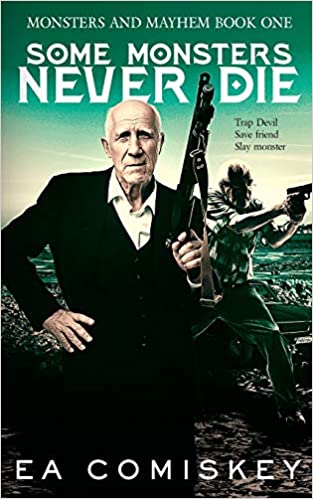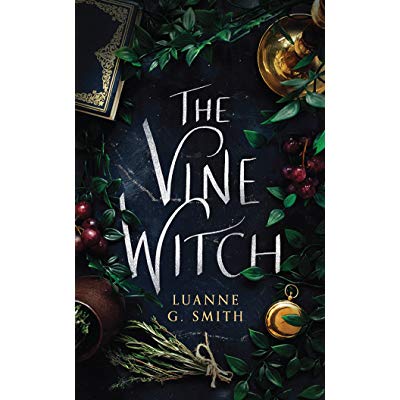Introduction
I recently finished reading Some Monsters Never Die by E.A. Comiskey, and let me say, I was impressed. More on that in a few. To start with, E.A. Comiskey is an author that I already know fairly well from working with her in our critique group. She’s awesome to work with, and when I put out the word that I was looking for fantasy books to review for The Fantasy Nook, she asked if I’d be interested in her book, Some Monsters Never Die. Boy, am I ever glad I chose to take her up on the offer.
Some Monsters Never Die: Reader’s Review
E.A. Comiskey really brought fantasy to life with this book. First off, it’s set in the real world in real (or fairly realistic) places, and that alone makes this piece seem more real than some. I loved the humor, magic, and larger than life events that moved the story along. The characters themselves were masterfully written. They’re also the most unlikely heroes and heroines. I mean, the female lead maybe works, aside from being a bookworm. But two old guys from a retirement home hunting demons and the unnatural?
Let’s just say it makes for quite the ride, and more importantly, it opens up all kinds of opportunities to grow on the parts of all the main characters. They set off on a quest all together and end it all together but as better, stronger people than they started out. Definitely worth the read!
Writer’s Review
Some books I’ve reviewed, like the Vine Witch, have done an excellent job of weaving magic into the world. Others have done a phenomenal job of world-building. But in this book, E.A Comiskey has managed to bring fantasy to life. Granted, most of the fantasy stuff she brought to life is the horrifying, monster side. The kind you never want to meet, right?
But, if it’s any consolation, her main characters are two old men and one bookworm woman. Not exactly the kinds of people you’d think would be able to handle things that belong in fantasy books as the antagonists coming to life, but hey. They manage.
And that’s part of what makes this book such a great piece. Comiskey took characters that seem so unlikely to succeed or even cope, with the exception maybe of the old guy who’s a hunter, and she threw them into a world where the horrors of a fantasy tale are all real. Skinwalkers? Check. Giant worm-like things that burrow in the ground and try to eat people? Also check. Dragons? Well… Stanley killed the last one a while ago, but beside the point.
Comiskey uses humor, unexpected heroes, and larger than life threats to really bring fantasy to life in this book. I’d label it as paranormal or maybe urban fantasy, but it’s by far one of the most unique takes on both genres that I’ve read in quite some time.
The Takeaway?
There’s lots to learn from and glean from reading this book, but for today’s focus, I have just one takeaway. Focus on how she weaves the monsters and their magic into every day life and then apply those techniques and principles to your own work. You may not be writing something that’s meant to be even a little bit funny. You may not intend to focus mostly on supernatural monsters and magic spells to kill them.
But if you’re writing fantasy, then there’s going to be some fantastical element you need to make real to your audience. And if you want to bring fantasy to life, especially if you want to do it in our world, Comiskey’s book will show you one way how, and it will do it well.
Don’t waste the opportunity!



